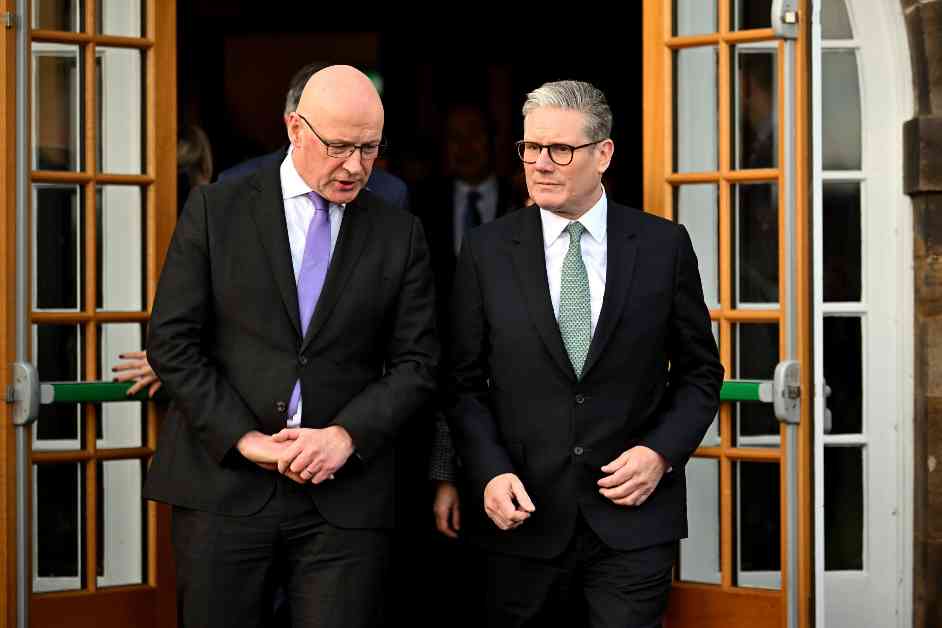A recent poll has revealed a significant decline in support for the Labour party in Scotland, with the Scottish National Party (SNP) experiencing a surge in popularity. The survey, conducted by Electoral Calculus and communications agency PLMR, indicates that Labour would only secure 12 seats in Westminster if a General Election were held tomorrow, compared to the 37 seats they held last summer. On the other hand, the SNP is projected to win 37 seats, capturing 31% of the vote share.
Emma Divers, the head of Scotland at PLMR, described this shift in voter attitudes as a noteworthy change within a short period. She highlighted that while the SNP’s rise in support is significant, it is also reflective of the challenges faced by the Labour Government. Economic hardships and declining public services have led many voters to question Labour’s ability to deliver on their promises.
Divers emphasized the importance of this moment for both Keir Starmer and Anas Sarwar to connect with voters and reinforce their message in Scotland. As the next Holyrood election approaches, there is an urgent need for Labour to re-engage with the electorate and present a compelling vision for the future of Scotland. Success in this endeavor could help them regain momentum, while failure may result in another term under an SNP-led Government.
In addition to the Labour-SNP dynamics, the poll also revealed interesting insights into the political landscape in Scotland. Reform UK emerged as a strong contender, trailing just one point behind Labour with 17% of the vote share. This closely mirrors the results of a recent UK-wide YouGov poll, where Reform UK led with 25% of the vote, followed closely by Labour at 24% and the Tories at 21%.
The full results of the Electoral Calculus and PLMR January 2025 MRP poll will be released on Friday morning, offering a comprehensive view of the current political sentiments in Scotland. Despite the challenges faced by Labour, other parties like the Liberal Democrats, the Greens, and the Tories have also seen fluctuations in their support. The LibDems experienced a slight decrease to 8%, while the Greens maintained their position at 4%. The Tories saw a marginal decline of one point, standing at 12%.
As the political landscape continues to evolve, it is clear that the upcoming elections will be crucial for all parties involved. The competition is fierce, and the need to connect with voters and articulate a compelling vision for the future is more important than ever. The fate of Scotland’s political future hangs in the balance, with each party vying for the support of the electorate to shape the path ahead.












